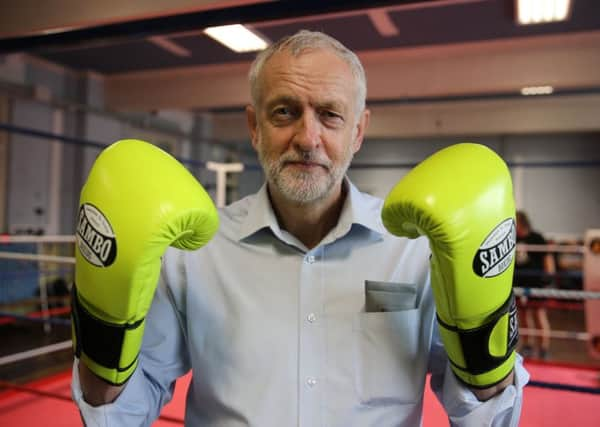Ian Swanson: High noon for Labour in the Last Chance Saloon


Jeremy Corbyn is expected to see off challenger Owen Smith by a comfortable margin – not surprising given he secured 59 per cent of the vote in the last leadership election just 12 months ago.
In normal circumstances a leader with such a hefty popular mandate would not be having to go through another contest so soon – but Labour’s circumstances are far from normal.
Advertisement
Hide AdAdvertisement
Hide AdThere is a deep and fundamental division of opinion between the party’s grassroots members and its representative at Westminster – which is what led to the leadership election, but which the leadership election may well fail to resolve. Mr Corbyn never had majority support among his fellow Labour MPs. Some senior figures refused to join his shadow cabinet. Others, like Edinburgh South’s Ian Murray – the party’s only MP in Scotland – were willing to try to make a go of it. But now most of them have quit their posts, saying Mr Corbyn is not a leader and won’t win a general election.
Critics claimed as soon as he was elected that Labour would face electoral disaster – but in fact the party has since won the London mayoral election, several other mayoral contests south of the border, four by-elections and improved its overall position in the council elections in England. The Holyrood elections were a different story – but Scottish Labour has its own problems.
And although Mr Corbyn’s opponents brand him unelectable, up until the leadership contest opinion polls showed Labour doing not too badly against the Tories. It is since the contest began that poll ratings have really plummeted.
Nevertheless, those who want a change of leader are not just those who were opposed to Mr Corbyn from the start. Even many who agree with the thrust of Mr Corbyn’s policy platform feel disappointed with his performance as leader.
Advertisement
Hide AdAdvertisement
Hide AdThey feel he has not put the case as strongly as he should on some issues.
And despite his regular declarations that he wants to “reach out” to his critics and his appeals for the party to “come together”, MPs complain how difficult it is to get meetings with him.
The leadership contest has been a bitter one, but whatever the rights and wrongs of the behaviour on either side, Mr Corbyn and his critics must somehow put their differences aside once the election is over – for the sake not just of the party, but also of the country.
A strong and effective opposition is an essential part of the democratic process. But while Labour has been battling internally all summer, Theresa May’s new government has been getting an easy ride.
Advertisement
Hide AdAdvertisement
Hide AdMr Corbyn insists he wants to build bridges with the parliamentary party once he is re-established in post – and some of his critics have indicated they would be willing to work with him.
Mrs May has said the next Westminster general election will not be until 2020. Could that give Labour enough time to recover and present itself as a credible alternative government?
If that is to happen, it is vital that Saturday heralds a new spirit inside the party. When it comes to elections, the one certainty is that divided parties never win.
If Labour continues to focus more on its internal battles than the urgent need to address the real issues, it will simply destroy itself.